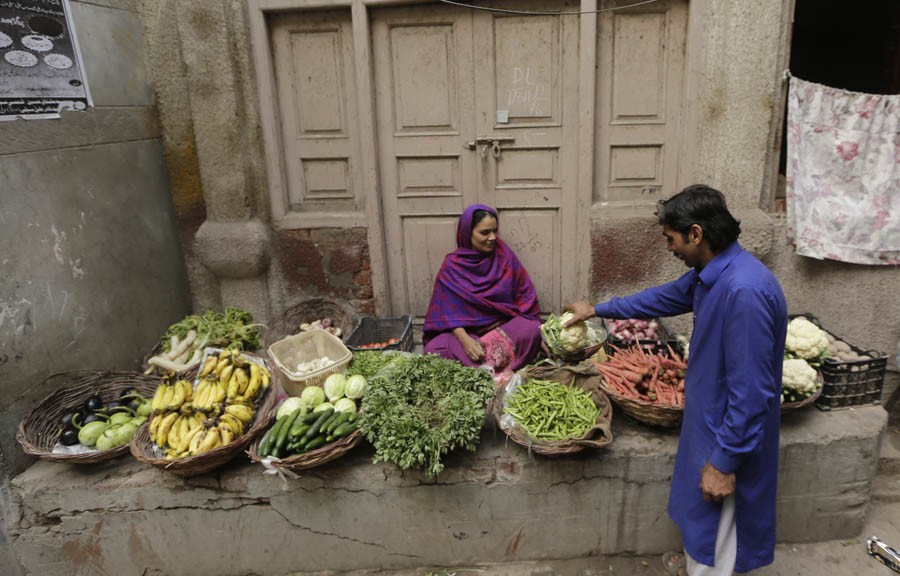
You don’t need to give up eating meat altogether to save the planet, you just need to reduce its intake

I randomly asked a friend if they’d ever give up eating meat and triggered a stream of profanities followed by a predictable ‘go make someone else do it’. I’m fairly certain this instinctive response accurately sums up the sentiments of most people. The good news is, you don’t need to give up eating meat altogether to save the planet, you just need to reduce its intake.
Meat consumption and its role in fueling climate change has been making headlines since the Intergovernmental Panel on Climate Change (IPCC) released their Special Report on Climate Change and Land earlier this month. The IPCC is the leading global body on climate change assessment and its work is responsible for the most informed conversations on the subject. Judging by the suspicious questions I heard at a recent conference in Pakistan, I’m happy to table, that the issue of meat consumption has been marinating in doubt here as well.
Allow me to offer a side of clarity to go with the findings of this report.
Think of two-fold concerns as you attempt to digest the impact meat has on climate change. Firstly, cows and other ruminant animals (like goat and sheep) emit methane when they digest plant intake. Methane is a greenhouse gas roughly 34 times more potent as a heat-trapping gas than carbon dioxide (CO2). Methane is also produced in the anaerobic decomposition of manure. Furthermore, another greenhouse gas, nitrous oxide, is released from chemical fertilisers which are used on crops to produce feed for animals. Globally, livestock accounts for between 14.5% and 18% of all human-induced greenhouse gas emissions.
Secondly, land which is designated for livestock grazing could be used more effectively if people didn’t prefer meat over vegetables. This land could then successfully store more carbon to offset the individual’s carbon footprint. Land is the second-largest store of carbon, after oceans, and it’s largely plants on land which absorb carbon from the air to store in the soil. With livestock eating plants, the capacity of land to store carbon is reduced and it is instead released back into the atmosphere in the form of CO2. This degraded soil, with limited carbon, further compromises plant growth.
To make things worse, the desertification of land associated with deforestation and livestock grazing can provoke additional heat waves and alter precipitation patterns. Without vegetation to buffer it, land releases even more heat into the atmosphere for surface cooling.
Amongst the various types of meat consumed on a large scale, beef requires significantly more resources to be produced than lamb or chicken. According to a paper published in 2018 by international journal, Nature, a kilo of beef protein has the carbon opportunity cost of 1,250kg; this is almost equal to driving a new car for one year or taking a return flight between London and New York.
Undisputedly then, eating vegetables significantly reduces greenhouse gas emissions. Not to mention, it’s more practical to grow a crop and eat it, rather than grow a crop, feed that crop to animals and then eat the animal.
Interestingly, no matter how much we satirise avocadoes for representing the millennial attitude, meat consumption is actually still rising in developed countries like the United States. The UN Food and Agriculture Organization (FAO) estimates that demand for beef and other meats could increase by 88% between 2010 and 2050, requiring pastureland larger than the size of India to meet the growing needs. This space will mostly be created by cutting down forests. Even with improved efficiency in meat production techniques the eventual result is only further deforestation, reduced biodiversity and enhanced greenhouse gas emissions.
The consumption of meat is a contentious and complicated discussion. In some places in Pakistan, there is, literally, religious reverence attached to it. Furthermore, in our society, meat is a symbol of opulence, a superior presence on dining tables, and of course, a generationally undisputed source of rich nutrition.
But, whatever your mindset, substituting meat with vegetables for a few meals a week, is hardly the toughest lifestyle change you must embrace for the sake of your planet. Yesterday we had the option to consider change, today we must accept it. If humans don’t alter their greenhouse gas emission patterns, the cathartic choice of consciously celebrating change will soon be shrouded by the gloom of necessity.
The IPCC Report provides policy recommendations for governments to stop deforestation so trees can soak up carbon, whilst incentivising people to alter their dietary habits in favour of plant-based diets. The answer therefore doesn’t necessarily rest in a mass movement to adopt veganism, but in accepting food preferences that involve reduced meat and dairy consumption.
You don’t have to feel guilty every time you eat meat, if you promise to remove it from your diet on Monday, Wednesday and Friday. Think about it this way; eating more greens isn’t just good for your personal wellbeing anymore - it’s medicinal for mother Earth.